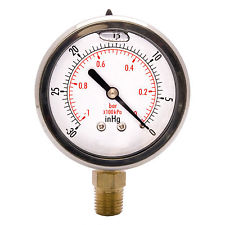Calibration is the process of maintaining accuracy of the measuring tools. The measurements are so much important for some productions. The accuracy may be needed in case of much type of equipment and measurement. Possibly, the food industry needs this kind of accuracy most. Foods must be kept in a proper temperature and this will maintain the quality of the food. There are other devices too which must be kept in proper position. To maintain all of them, the process of calibration is very important. In this article, we are going to explain the importance of calibration in food industry.
Meeting the requirements of the standard:Calibration ensures the correct measurement which again monitors the quality. To meet all the requirements set by ISO, it is important to calibrate the equipment at regular intervals for better food quality. Calibration can be done in your own worksite or in a lab. But you must ensure that a standard organization, like ISO, traces the standard maintained while calibrating. Hiring http://www.zenithinstruments.com.au/dumpy-and-laser-level-calibration-service or calibration service for your food business from a reputed provider will work the best for you.
It is important for meeting rules and regulation:Rules and regulations by the country and also the state regulate the industry. These bodies regulate the frequency of calibration. To meet the demand of both state and federal laws, it is important to calibrate the equipment. Calibration is needed for different industries and devices, like a vacuum gauge Australia.
Quality:A food product needs to be prepared with perfect measurement. If the accuracy of any measurement is wrong, then it can affect the quality of the product. Calibration at regular interval will assure of the accuracy and the food product will be a quality one.
Save energy:Measurements need to be repeated if the equipment is not accurate. To repeat the measurements, the process needs to be repeated and it will consume energy. By calibrating the equipment, you will be able to save energy.
Machine performance:Calibration will help to find blockages in the machines. Machines with blockage have lower performance which will hamper the production.
Processing cost:It is not possible to check after every single process. It will increase the cost of production. Calibration will assure of accuracy and there will be no need for further checks.
Repairs:If calibration is not done on time, the instrument and sensors will put pressure on the equipment. The equipment may need repair which will cause some time waste.
Reduce wastage:Calibration also helps in ensuring quality and reduces the wastage of raw materials.
Reduces pollution:Calibration ensures the best performance of the equipment. There will be less pollution with properly working equipment.